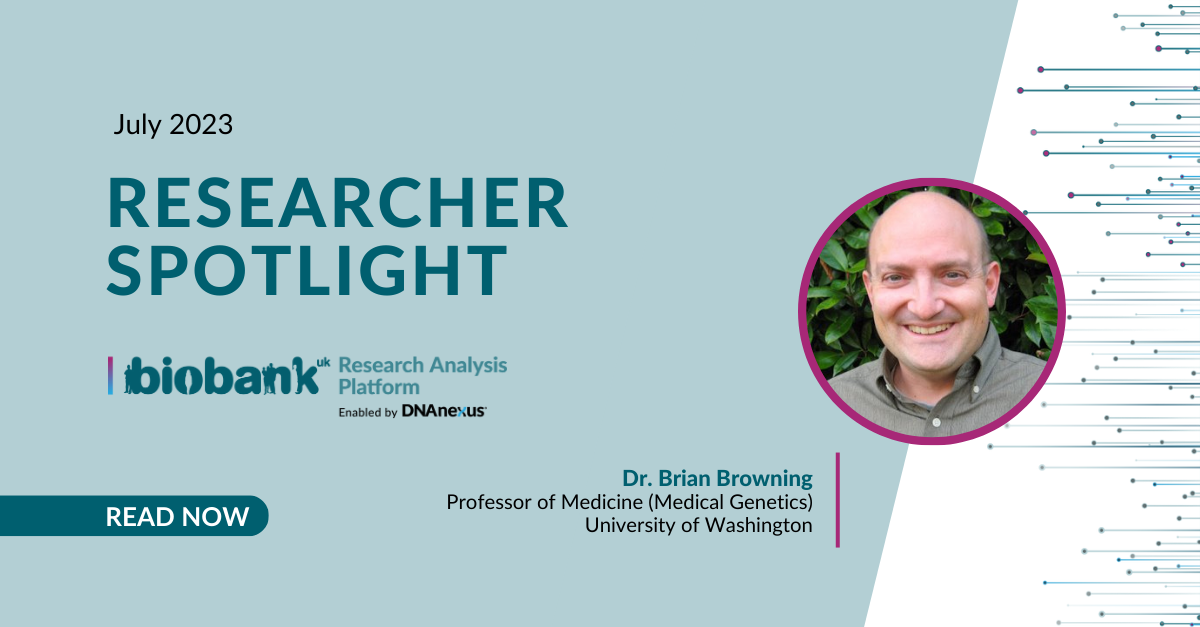The Monthly Researcher Spotlight is our section highlighting the exciting work of the UK Biobank Research Analysis Platform user community. If you would like to be featured, email community@dnanexus.com.
This was simultaneously published in the July 2023 UK Biobank RAP Newsletter. You can sign up for future installments here.
This month's Spotlight features Professor Brian Browning, who develops methods for analyzing large-scale genotype data. You can also view the recording of him discussing of his work on phasing UK Biobank data from earlier this year.

Dr. Brian Browning
Professor of Medicine (Medical Genetics)
University of Washington
What are the focus and discovery highlights of your research?
I develop computational methods for analyzing large-scale genotype and sequence data. One highlight was work with Sharon Browning that showed there have been at least two pulses of admixture between Denisovans and modern humans. Another highlight was the development of genotype imputation methods that reduce the cost of genotype imputation to less than a penny per genome.
What are some of the key questions that you are looking to answer using UK Biobank data?
Our group is interested in using UKB data to search for genomic loci that have undergone selection. We also use UKB data to develop new methods for biobank-scale analysis.
How has the UK Biobank Research Analysis Platform (UKB-RAP) helped you perform your research?
We automate our analyses with shell scripts and the UKB-RAP’s command line interface. The UKB-RAP’s web interface makes it easy to monitor our compute jobs.
Any tools or tutorials that you have developed that would be useful for the UKB-RAP community?
Our research group has developed several tools for biobank-scale analyses. These include a pipeline for phasing UK Biobank data, the Beagle software package for genotype phasing and imputation, the hap-ibd program for IBD segment detection, and Ying Zhou’s IBDkin program for estimating kinship coefficients from IBD segments.

.png)
.png)
.png)